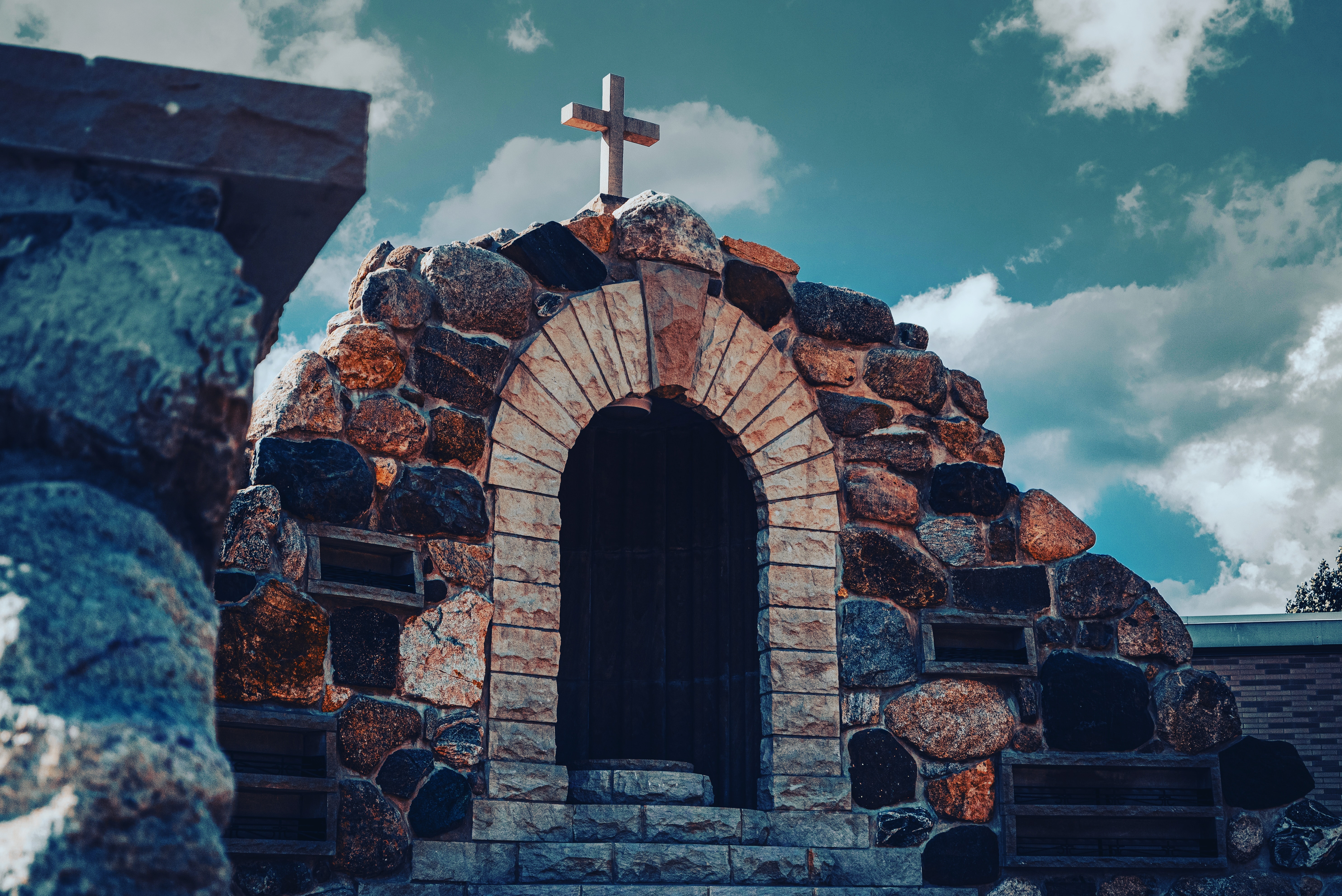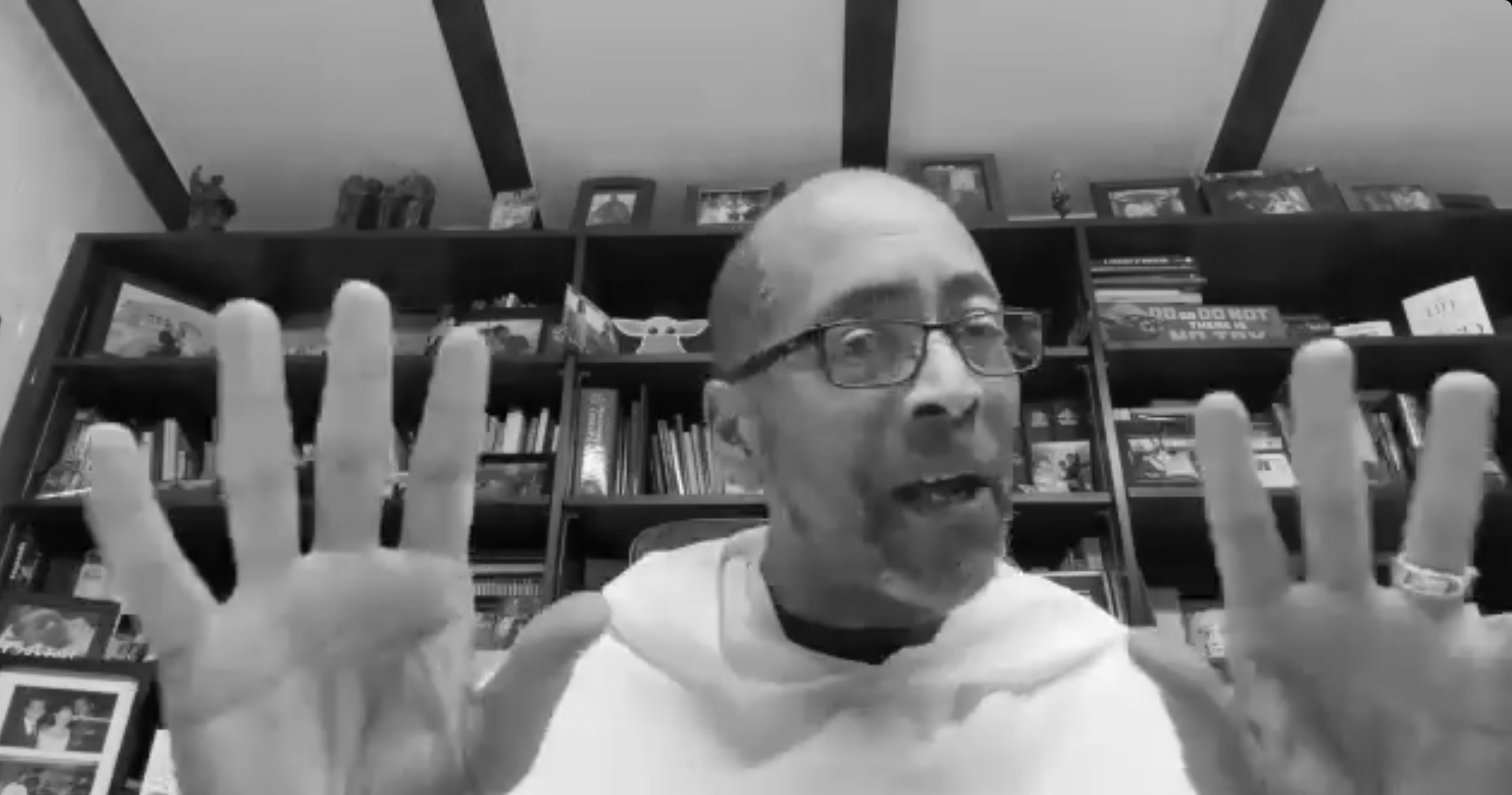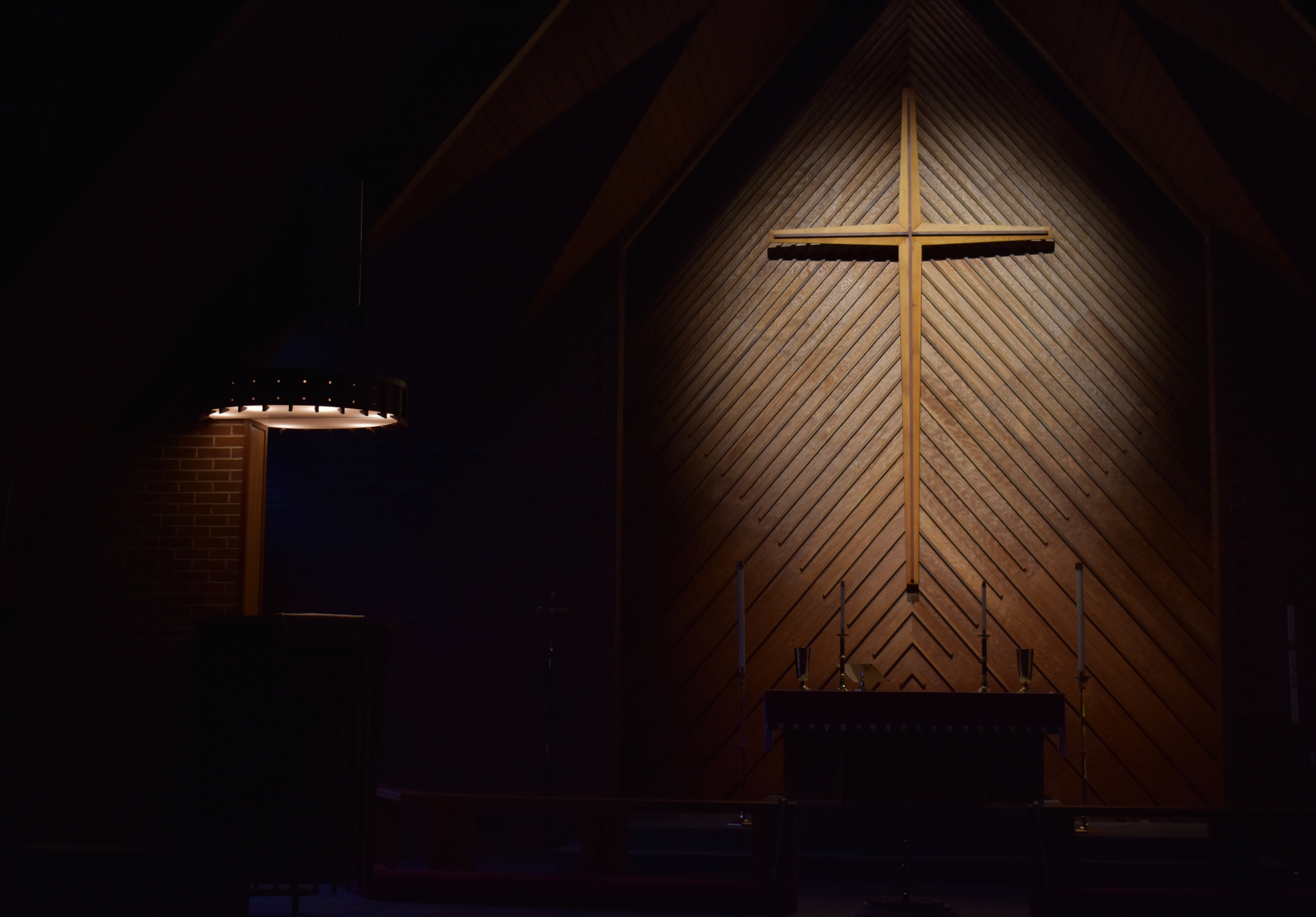"I will highly encourage families to pray together. To make sure that you are continually telling your son, your daughter, that they’re loved, that the Lord made them, and the Lord made them with a purpose. And they have a specific vocation that they need to fulfill in which they are going to be happy."
We talk with Sister Katia Chavez, SJS (Sister Servants of the Blessed Sacrament) about vocations. As the Director of Vocations, Sr. Katia speaks about how her work changed with the pandemic, what impact a nurturing environment to religious life and community can have and much more.
The following is an edited transcript of the podcast interview with Sr. Katia Chavez:
Sister Katia, as the director of Vocations for the Sister Servants of the Blessed Sacrament, what did your work consist of before the pandemic and how has it changed now?
My work as a vocation director is to lead women and guide them into the discernment process so that they will decide to enter religious life. Before the pandemic I used to go to schools to give presentations about vocations. I used to go to different parishes and speak at youth groups, confirmation classes with young adults, and I would just explain what vocation is.
When the pandemic came along and I couldn’t go to those meetings anymore, to be present there at the parishes. For a while I was thinking, now what? I guess it was the same question for many people. It’s like now how is my work going to be transformed. Fortunately, before the pandemic I had thought of starting a Youtube channel, so when the pandemic hit I thought this is the opportunity. This is the best time. So I created a channel and with the help of other sisters I was able to reach out to more people and record myself with the presentation that I would go to the parishes to deliver. And so that way it was on air and if someone had a question about religious life or vocation I would just send them the link. And that’s how it changed but I was glad because it taught me to do vocation work differently.
And what has been the feedback you received now that you’ve entered the online space?
It has been very positive. I think that women have received it very well and they appreciate the fact that we are more at hand, I would say. You know, in navigating the web, they can find us there. The advantage is that women from other places of the world and even the US can reach us. And we can reach them. And they don’t have to come all the way to California. So it has been received very well. The comments have been very positive.
It was challenging at the beginning but I see now the results especially because we also have virtual sessions on exploring religious life. We have had virtual retreats and women attend. You know, even more women, because in the past it was local but now we have women from New York, for instance. We have one who joined us for the sessions and then eventually came over for a retreat. So it has been very positive. It has made a big impact.
You mentioned that there were challenges. Can you describe what are some of those challenges that you faced and how did you overcome them?
Yes, the challenges I’m talking about are different kinds. So for instance the technology part. Having the appropriate camera or the software that we need to edit the videos, to put them out there. So that was one part which I needed to learn and it was challenging but beautiful. The whole process, it was a learning experience and it was great.
And the other challenge I’m talking about is what you were mentioning. It’s not easy for a lot of people, particularly some religious and some church members accepting religious being on there. You know, it’s like, “what are they doing there? They’re supposed to be in the convents. They’re supposed to be there just praying and just keeping to themselves.”
But with the pandemic, what do you do? Like you have to explore, venture out, and find ways to continue proclaiming the Good News. And proclaiming that we all have a vocation and we all need to find it because that’s going to make us happy. So those kind of challenges you have to be very careful, you have to be very attentive, and just follow protocols. You know, do what you’re asked to do and just move on.
I would say that I’m so fortunate also that I have very supportive sisters who were encouraging me and helping me out and they were just saying. you know, just go for it. Let’s try it and just go for it. They trusted me and I’m so happy and I’m so thankful. And I think that at the beginning stage, probably there were like small steps with fear, but now things are changing and evolving and now we know it’s fundamental now. It’s essential for vocation work.
Is there a difference you’re seeing between the people who are reaching out to you attending these online retreats as opposed to before when it was more just in person?
Yes, I’ve seen a difference. I see the difference mainly is in the participation of women who are far away. Like if I would have had a retreat in person, that will mean that I will only have women around the area where the sisters work. But now that some of the retreats are virtual or some of the sessions are virtual, we are reaching out to more people. It’s a wider space. Women join us from Kenya, from Nigeria, from New York. I don’t think we would have done that without having our virtual retreats.
And although they are very helpful in gathering more women from all over the place, it’s only the first step. Because when it comes to religious life, women need to first understand what it is. Learn more about religious life by talking to a sister. But if they want to go through a formal process and they are ready to enter religious life, the one-on-one presence is essential. We have to have them come over and spend some time with us in the convent and then make decisions.
I’ll give you an example. This lady who found us through the internet, she went to our website, saw that we have these sessions going on, she was interested about religious life, so she connected with us and we started a process. But there was a time in which she needed to come so she flew to California. She spent a week with us. Within that week there were three days of retreat, so we were able to interact with her, she was able to get to know us, to eat with us, pray with us, do the divine office and learn more about religious life. So the virtual events are good as a first step of screening but definitely coming, seeing, and experiencing is what’s going to make women move from discernment to decision.
You may awaken something spiritual in them, kind of discerning what they should be doing with their lives as a single or married person. How much do they continue reaching out to you, if any, after not necessarily joining religious life?
Yes, you’re mentioning two very important things. One, that through this process many women get to know themselves so well. They improve their relationship with God, they improve the knowledge of themselves and even if at the end they do not decide to enter religious life, they just gave themselves an opportunity for growth that I don’t think they would have had before.
And if they decide that they’re not ready because it could be that they’re just not ready, it’s not the time, and they finish their formal process they could go back to their normal routines, their classes, their schedule, their work that they had before and they know that we are always there for them. They are always welcome. They know our schedules by then so they know when we have our evening prayers, or our holy hour, or adoration that they can come and pray with us.
So we also have this list of constant contacts where we keep their information and every time we have a reflection day or any event, we invite them. We always send them that invitation and we keep them in mind, we keep them in our prayers. However, if they don’t respond the way we think they would, you know, they kind of disappear but it’s up to them actually. It’s up to them. They are welcome, they are invited, we think of them, and whenever the Lord calls them, if they want to come back and resume their discernment they know we’re here.
What’s the average time period from when a person attends a retreat to when they move forward and decide to enter religious life?
It actually depends on each individual because if that person is constant with that communication and that person begins the process relatively fast, that process will take from six months to a year. So if someone is inclined to religious life and formally begins the aspirancy, then we start having sessions of discernment one-on-one and after six months to a year they can make a decision.
And that is basically when the young lady is younger. This is what I’ve noticed, because when they are finishing high school, before they actually go into college, they are that period of time in which they’re free. They have more freedom to move, to decide, to take their things and follow Jesus and enter into religious life. There’s no obstacles, nothing that is going to be an impediment for them to enter. Now those are the ones that go the fastest. Those are the ones that take six months to a year.
There are other ladies who receive the call later in their lives. So perhaps after college they have finished and they’re older and by then they have other obstacles that they have to face before they actually enter the convent. So for instance they may have student debts, they may have some possessions of their own that they have to see what to do with that, before they actually join the convent. Because one of the vows that we make is poverty, chastity, and obedience. But with poverty you have to make sure that there’s no debts before you enter the convent. And so when you’re older you may have to deal with certain things like that and so that will take more, that would probably take two years.
In one of your videos you provided the information that the National Religious Vocation Conference data shows 70% of new entrants considered religious life before age 21 and 95% found the most help from meeting a sister of that congregation. Given this information, how early are you engaging individuals?
To respond to their vocation before 21. Okay, so there are various stages. Although, yes, before 21 they have this idea or desire to enter religious life it didn’t really start there. There’s a lot going on before because a vocation is like a seed that is planted and then it just keeps growing and it comes to a point in which they realize, I think God is calling me. And that is when they’re like before 21 or so.
In our community, what we do to help those women decide if they are interested in religious life or not, or if the Lord is calling them, because we are an education community we have elementary schools and high schools, we try to build a culture of vocations. We want the students from an early age, kindergarten, preschool, to begin thinking that they are made in God’s likeness and image. And that they are loved and they are made with a purpose in life and they will find their specific vocation. And this is a theme throughout their Catholic school, throughout their elementary years and also high school. So that seed has been planted in them and the environment around is what’s going to help it grow. And so it is not a surprise that before age 21 that seed already flourishes and now they are thinking of: the Lord is calling me, I need to respond, I have a vocation and I need to follow through.
So that’s what we do in elementary school. But now as a vocations director what I do, I go to Newman Centers in colleges, for instance. I go as I said before to two different parishes, to try and help guide those desires from these people that may have them at the age of 17 when they’re in confirmation years or in the youth groups when they’re 18/19. So I’m there, I’m around them so when these calls come, they can reach out and say, hey, I think there is something going on in my life. Could you help me?
That’s my hope and that’s what I do in order to help those people who are interested in becoming sisters.
Have you seen a difference from these students where they are nurtured at a young age in vocations? Have you had that experience of seeing someone very young to now, where they’re graduating high school or in college?
Yes, and thank you, thank you, so much for asking. And no I have not experienced like myself seeing someone young and then now they are realizing their own vocation. But I’ve heard and I’ve seen. Let me give you an example, I went to the Newman Center to work with vocations, give a presentation and such, and then I found this young lady whom I didn’t know who she was. But she knew the Sister Servants of the Blessed Sacrament so she comes close and then she goes, “oh, I studied at St. Kieran with Sister Irma and you are the Sister Servants of the Blessed Sacrament.” And I was like, Oh, wow, so you are a student. And she said, yes, I was there in third grade. Now she’s in college, she’s graduating, and she is thinking of becoming a Sister.
So, yes, like I’ve seen that growth. I do have to say that the family environment also has a lot to do for that vocation to be nurtured and to flourish and to finally end in entering religious life. Because, although the school provides this environment and the knowledge and the experience of God, through various religious activities, if the family is not supportive, if the family values are not in line with the values the Catholic School tries to instill in them, then that seed is a little bit harder to grow. It takes time.
Are there any recommendations you have that parents can be doing to also nurture vocations?
This is an invitation to all families. I’m sure that all parents want their children to be happy, to be fulfilled, to do what the Lord wants them to do and to be. So I will highly encourage families to pray together. To make sure that you are continually telling your son, your daughter, that they’re loved, that the Lord made them, and the Lord made them with a purpose. And they have a specific vocation that they need to fulfill in which they are going to be happy.
And they have to think about it, and there has to be some time in their life, in their family life, yes, for family prayer but also have the parents take their children to Mass. They need to receive the sacraments. They need to go to the sacrament of Penance, Reconciliation, to receive Jesus in the blessed sacrament. To have that instilled in them so that they are able to hear God’s call, they’re able to hear God’s voice. And not only able to hear it but to actually act upon it, look for ways, search to see if the Lord is calling them so they can have that generosity and that trust in God to answer. Because their prayer life is going to give them the love of God that they need to respond to that love eventually. But they need to know him otherwise it’s going to be very hard to listen to him and to follow him.
Before we wrap up I want to ask three short questions that I’m asking all my guests at the end of the interviews. The first is, what is one scripture verse or part of the bible that really resonates with you and why?
Well actually I have many, I have various ones that I really like and they bring a lot of joy to my life. I will say that John 1:14 is one of my favorites. I think I can just ponder that mystery of the incarnation because John 1:14 talks about the word made flesh and dwelt among us. And I think that whole mystery of God becoming man, to be with us, that closeness of God is just amazing and it is mind-blowing to think of a love like that. And the word made flesh dwelt among us. And if you think about it, us being a community of Eucharistic spirituality, the Lord lives in the tabernacle. Jesus lives there and just coming to him and into his presence, so close, so loving and compassionate is just beautiful. It’s a beautiful mystery. I really, really love that and I think I could just, I don’t know, maybe write a thesis on that bible passage.
The second question is, what is one word or couple of words that you would like God to use to describe you?
I would say I am very adventurous and I like to take great risks. I like to learn, I like to discover new things. And one example is when I was going to enter the convent. I was 17 almost 18, and I was asked to come to the US and I said, yes. I just was excited, excited that I was going to take a new risk, a new adventure, a new way of life with Christ.
And is there anything we can help promote or you would like others to support you or the Sisters?
Yes, I will say to all those who listened to us, first to pray for vocations, to pray for your own if you haven’t found yours yet. To pray for the vocation of your children. And if any of you is interested in becoming a Sister or learning more about religious life go to our website usasjs.org and you will find different videos and ideas and things how to go about discerning your vocation. So I will say, also to families, please pray with your children, talk to them about their vocation, take them to Mass, let them know about God’s love and in the beauty of serving others and giving our lives for love of God.
Again I just want to reiterate that I am the vocations director for the province of the Immaculate Conception with the Sister Servants of the Blessed Sacrament. You can find my contact information on the website and if anyone is interested in learning more please contact me. I’ll be happy to help you out.





